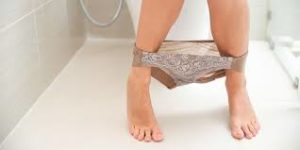
Treating Bladder Infection
If you have ever had a bladder infection you know how painful it can be. It is uncomfortable and irritating. In America women go to their doctor 6 to 9 million times a year. Most of time the treatment for a bladder infection is antibiotics. At least 10 to 20 percent of women will experience a bladder infection at least once over a 12 month period.
Most of the time bladder infections are result of bacteria. When you have a bladder infection your bladder interior walls are inflamed. This inflammation is known as cystitis.
Signs You Are Experiencing Cystitis
- Urinating Frequently
- Urgent Need To Urinate
- Pain When Urinating
- Cramping In Abdomen
- Lower Back Pain
- Fever
Most infections in the bladder especially with women can come from the frequent use of antibiotics. Antibiotics destroy good bacteria in the body. Also, a poor diet, stress can causes the immune system to be weak. This increases the chances of getting an infection. A lot of time women may experience bladder infection during menopause.
Causes Of Bladder Infections:
- bacteria
- chlamydia
- mycoplasma
- immobility
- insufficient fluid intake
- surgical procedure within the urinary tract
- a urinary catheter
- urinary obstruction, which is a blockage in the bladder or urethra
- urinary tract abnormality, which is caused by birth defects or injuries
- urinary retention, which is difficulty emptying the bladder
- narrowed urethra
- enlarged prostate
- bowel incontinence
- pregnancy
- diabetes
How To Reduce The Chance Of An Bladder Infection
- drink six to eight glasses of water a day, but consult with your doctor about the correct amount of fluid to drink if you have kidney failure
- drink cranberry juice daily
- go to the bathroom, don’t hold it
- avoid drinking sugary drinks
- Get more vitamin C ( Green Leafy Vegetables)
- Avoid Citus Fruit Juices ( Orange, Lemon, Lime, Grapefuit)
- urinate as soon as you feel the need
- wipe from front to back after urinating if you are female
- don’t use douches, feminine hygiene sprays, or powders
- take showers instead of baths
- wear cotton underwear and loose-fitting clothes
- change your underwear daily
- wear sanitary pads instead of tampons
- avoid using a diaphragm or spermicide and change to an alternate form of birth control
- avoid using a diaphragm or spermicide and change to an alternate form of birth control
- use nonspermicidal lubricated condoms
- urinate before and after sexual activity
- Drink 2-3 litres of fluids (wate
- Go to the bathroom as often as you need to – don’t hold it in
- Avoid drinking alcohol, coffee or citrus juices (orange, lemon, lime, grapefruit), as they can irritate the bladder
- Avoid drinking sugary drinks
- Drink cranberry juice to prevent future infections (this will not heal current infections but may prevent future bouts). However, do not drink cranberry juice if you are taking a blood-thinning medication such as warfarin
- Get more Vitamin C (for example from leafy green vegetables and tomatoes)
Symptoms Of A Bladder Infection
- cloudy or bloody urine
- urinating more often than usual
- foul-smelling urine
- pain or burning when urinating
- a frequent sensation of having to urinate, which is called urgency
- cramping or pressure in the lower abdomen or lower back
- scanty flow or dribbling
- fever
- nausea and vomiting
- cramps in abdomen and lower back pain
Best Diet For Bladder Infections:
- Eat whole foods
- Drink 8 glasses of water
- Drink cranberry juice
- Eat watermelon, celery, parsley
Don’t eat spicy foods, sugary foods, caffeine, salty food, processed foods, refined foods, drinks
